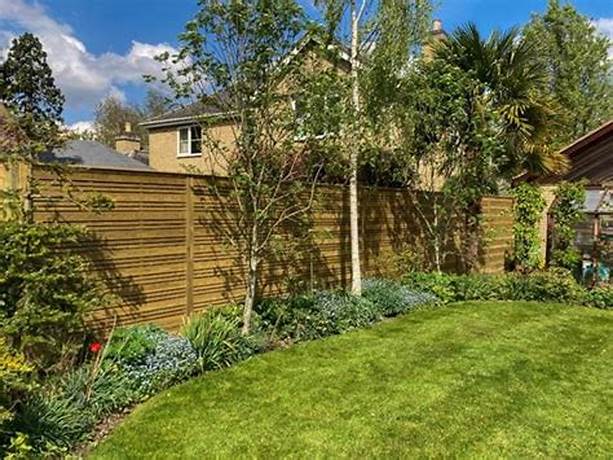How Landscapers in Leamington Spa Create Eco-Friendly Gardens
BlogAs environmental awareness grows, more homeowners are looking to create eco-friendly gardens that not only beautify their outdoor spaces but also contribute positively to the environment. landscapers leamington spa are at the forefront of this trend, employing sustainable practices and designs that enhance biodiversity, conserve resources, and promote ecological health. This article explores how these professionals create eco-friendly gardens and the benefits of going green.
1. Utilizing Native Plants
Why Choose Native Plants?
Native plants are adapted to the local climate, soil, and ecosystems, making them easier to grow and maintain. They require less water, fertilizer, and pesticides compared to non-native species.
Landscaping Practices
- Plant Selection: Landscapers in Leamington Spa carefully choose native plants that thrive in the region, such as wildflowers, shrubs, and grasses.
- Biodiversity: By incorporating a variety of native species, they create habitats for local wildlife, including birds, pollinators, and beneficial insects.
2. Implementing Sustainable Water Management
The Importance of Water Conservation
Efficient water management is crucial in creating an eco-friendly garden, especially given the changing climate and potential water shortages.
Landscaping Practices
- Rain Gardens: Landscapers design rain gardens that collect and filter runoff, allowing rainwater to percolate into the ground while providing habitat for local wildlife.
- Drip Irrigation: Installing drip irrigation systems ensures that plants receive targeted watering, minimizing waste and conserving water.
- Rainwater Harvesting: Some landscapers implement rain barrels or cisterns to collect and reuse rainwater for irrigation purposes.
3. Soil Health and Composting
The Role of Healthy Soil
Healthy soil is the foundation of a thriving garden. It supports plant growth, retains moisture, and promotes beneficial microbial activity.
Landscaping Practices
- Soil Testing: Landscapers conduct soil tests to assess nutrient levels and pH, allowing them to amend the soil appropriately.
- Organic Matter: They incorporate compost and organic materials to enrich the soil, improve its structure, and enhance its ability to retain moisture.
- Mulching: Using organic mulch helps suppress weeds, retain soil moisture, and gradually enrich the soil as it breaks down.
4. Creating Habitats for Wildlife
Promoting Biodiversity
Gardens can be a sanctuary for various wildlife species, contributing to local ecosystems.
Landscaping Practices
- Insect Hotels: Landscapers often install insect hotels to provide shelter for beneficial insects like bees and butterflies.
- Bird Feeders and Baths: Incorporating bird feeders and baths attracts birds, aiding in pest control and pollination.
- Natural Materials: Using logs, rocks, and native plants creates diverse habitats for various species, promoting a balanced ecosystem.
5. Choosing Eco-Friendly Materials
Sustainable Sourcing
The materials used in landscaping can significantly impact the environment. Eco-friendly materials reduce carbon footprints and promote sustainability.
Landscaping Practices
- Recycled Materials: Landscapers utilize reclaimed wood, recycled stones, and other sustainable materials for hardscaping features such as patios, walkways, and fences.
- Locally Sourced Products: By sourcing materials locally, landscapers reduce transportation emissions and support the local economy.
6. Encouraging Organic Practices
Avoiding Harmful Chemicals
Eco-friendly gardens avoid synthetic pesticides and fertilizers that can harm beneficial insects and contaminate the soil and water.
Landscaping Practices
- Organic Fertilizers: Landscapers recommend using organic fertilizers derived from natural sources to nourish plants without chemical residues.
- Natural Pest Control: Instead of chemical treatments, they employ integrated pest management techniques, including introducing beneficial insects, companion planting, and natural repellents.
7. Designing for Energy Efficiency
Energy-Saving Benefits
A well-designed garden can improve energy efficiency by providing natural shade and reducing heating and cooling costs.
Landscaping Practices
- Strategic Planting: Planting trees and shrubs in strategic locations can block harsh winds and provide shade for the home, reducing energy consumption.
- Green Roofs and Walls: Some landscapers incorporate green roofs and living walls to provide insulation, improve air quality, and enhance aesthetic appeal.
Conclusion
Creating an eco-friendly garden is not only beneficial for the environment but also enhances the beauty and functionality of outdoor spaces. Landscapers in Leamington Spa are leading the way in sustainable practices, from utilizing native plants and implementing water conservation techniques to promoting biodiversity and using eco-friendly materials. By adopting these practices, homeowners can enjoy beautiful gardens that support ecological health and contribute to a greener future.
